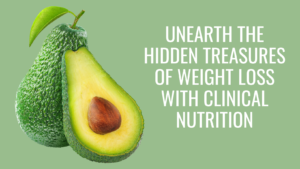Unlocking the Secrets of Unstoppable Hunger: How to Stop Overeating

Are you constantly haunted by the urge to eat, even when you know you’re not truly hungry? Do you find yourself grappling with guilt and depression after succumbing to overeating? If these scenarios sound familiar, you’re not alone. Many of my clients have faced similar challenges, and today, we’re going to explore the secrets to stop overeating and embrace mindful eating. Let’s embark on a journey of making conscious decisions about what we put into our mouths and when.
The Many Faces of Hunger
Understanding the different types of hunger is the first step towards regaining control over your eating habits. Here, we’ll delve into six distinct categories of hunger and how to manage them.
Physical Hunger: The growling stomach, plummeting energy levels, and difficulty concentrating. These are clear signs of physical hunger, and it’s your body’s way of telling you it needs sustenance. The key here is not to wait until you’re ravenously hungry because that often leads to poor food choices and overeating, which can contribute to weight gain. Instead, listen to your body and eat when you feel moderately hungry. This approach helps you avoid ingesting excess calories and subsequent weight gain.
Nutritional Hunger: Frequent cravings may indicate your body’s need for essential nutrients. Consuming empty-calorie, processed foods can leave you perpetually hungry because they lack the nutrients your body craves. When you regularly consume empty calories from junk foods or processed foods lacking nutrients, your brain keeps signaling hunger because your body still craving essential nutrients Promise yourself to opt for nutritionally dense foods—minimally processed, high in protein, complex carbs, and healthy fats—to feel satisfied for longer.
Habit Hunger: We’ve all been there, munching on snacks while watching TV, mindlessly eating during a meeting, or indulging in popcorn at the movies. We often associate specific foods with certain activities, such as popcorn during TV time or snacks during uninteresting meetings. These habits can lead to unnecessary eating. Break the cycle by keeping your hands busy with other tasks, like chores, folding laundry, drawing, sewing to distract yourself from unnecessary snacking. during these activities
Emotional Hunger: Food can become a crutch for emotions like stress, loneliness, or boredom. While it may offer temporary comfort, emotional eating rarely solves the underlying problems. Instead, incorporate exercise, yoga, and mindfulness practices into your daily routine to address emotional issues without resorting to food.
Hormonal Hunger: Ladies, this one’s for you! Period hormones can trigger intense cravings for unhealthy foods. Stay strong and embrace mindful eating during these times. While it may feel challenging, adopting a mindful approach to eating and indulging occasionally can help you navigate these cravings without derailing your healthy habits. Your cravings will eventually subside along with those tricky hormones.
Impulsive Hunger: Impulsive eating often occurs when surrounded by tempting treats. Before indulging, ask yourself if you’re genuinely hungry and if those snacks will truly make you feel good. If not, step away and focus on mindful enjoyment if you decide to treat yourself occasionally.
Environmental Hunger: Your surroundings and social company can influence your eating habits. Choose friends and environments that support your healthy eating goals as spending time with those who encourage overindulgence can lead to unhealthy habits. Celebrations don’t always have to revolve around food; consider engaging in games or meaningful conversations instead.
A Promise to Yourself
As you embark on this journey toward mindful eating and overcoming overeating, remember that it’s a process. Make a promise to yourself to listen to your body, nourish it with the right foods, break unhelpful habits, manage emotions differently, and find balance in social situations.
By understanding the various types of hunger and learning to differentiate between them, you can regain control over your appetite. Remember, it’s not about depriving yourself but about making conscious choices that honor your body and well-being.
So, here’s to a healthier, happier you—one mindful bite at a time.
Share this article
Priyanka Bhadauriya
With over 8 years of expertise in nutrition and dietetics, Priyanka's career spans various healthcare settings. Her postgraduate degree in Dietetics and Public Health Nutrition underlines her profound understanding of nutrition's scientific intricacies. Additionally, as a diabetes educator, she provides crucial support to individuals managing diabetes, enhancing their well-being. Priyanka's comprehensive approach to nutrition makes a positive impact on public health.












